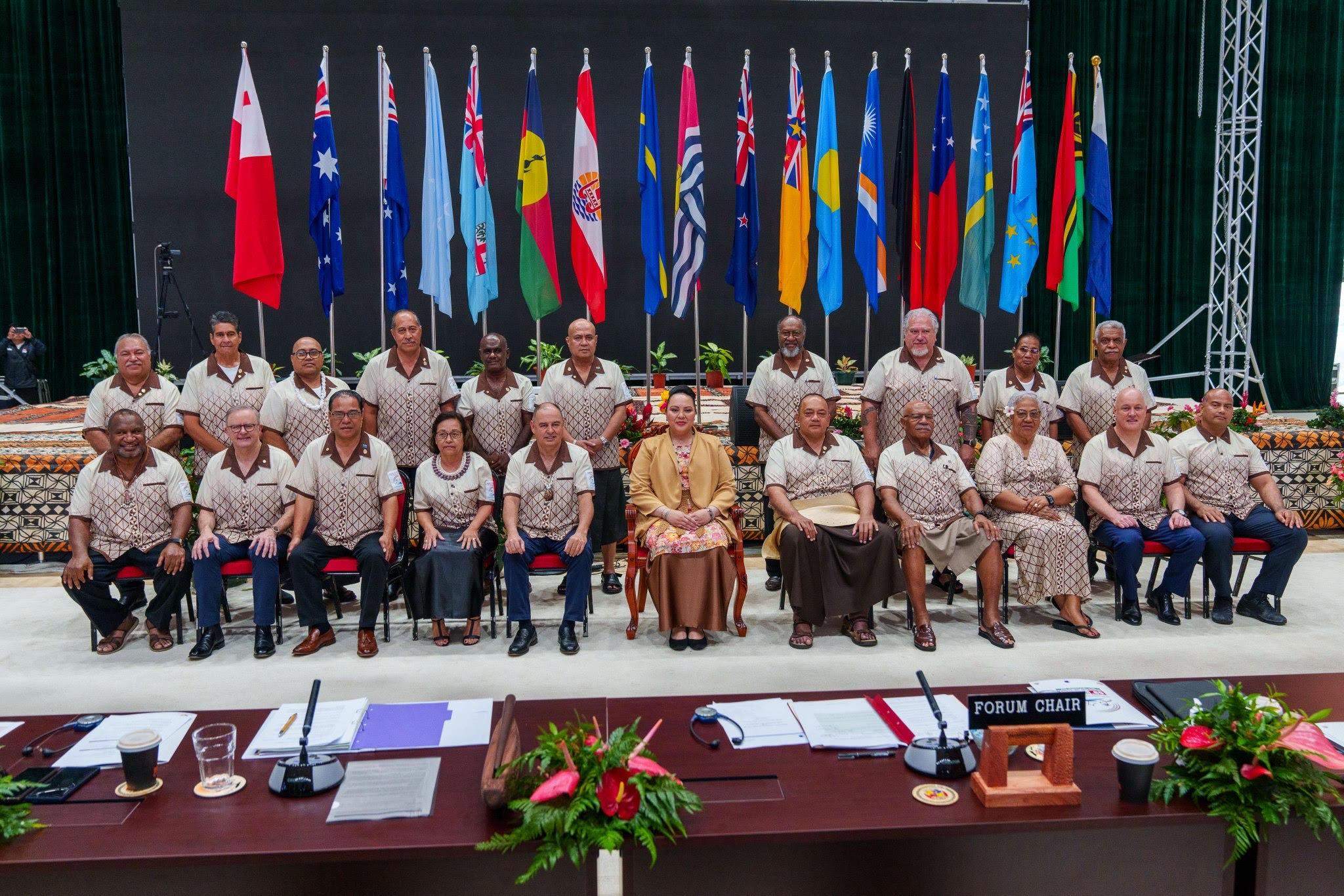
Beijing’s Pacific envoy threw a tantrum over a mention of Taiwan at the Pacific Islands Forum (PIF) last week. In doing so, he revealed China’s deeper insecurity over its Pacific presence, especially because of the success of the Australian-funded Pacific Policing Initiative (PPI).
‘Leaders reaffirmed the 1992 Leaders decision on relation with Taiwan/Republic of China’ was the innocuous line from the forum communique, signalling no change in policy. But it led to a fiery tirade from the envoy, Qian Bo, on a supposed error and Taiwan’s status in the PIF. Qian said ‘it must be a mistake’ and angrily demanded that ‘there must be a correction on the text’. They were fierce words for a diplomat.
Shortly after he voiced his grievances, the communique was taken down and uploaded again, this time without reference to Taiwan.
Although Qian clocked a minor victory in removing the line, there’s more meaning in his behaviour. In a forum that relies on consensus, Palau, the Marshall Islands and Tuvalu, which maintain diplomatic relations with Taiwan, blocked an attempt by the Solomon Islands—likely acting as a proxy for China’s interests—to revoke Taiwan’s status as a development partner.
The story of the 53rd PIF Leaders Meeting is not a positive one for China. The United States and Australia both announced major efforts that would entrench their presence in the region while furthering the Unlocking Blue Pacific Prosperity program.
Most significant was Australia’s $400 million backing for the PPI. Given the PPI’s origins in the Pacific Islands Chiefs of Police organisation, it is of genuine Pacific origin and targeted towards Pacific needs. Nonetheless, it will bolster Australia’s regional presence at China’s expense.
Australia has traditionally been one of the Pacific islands’ primary policing partners. In recent years, however, China has made internal security aid a key vector for spreading influence in the Pacific, sparking Western concerns. China’s policing activity has increased dramatically since 2020. Chinese police training, forces and equipment transfers have been most prominent in the Solomon Islands and increasingly ingrained in Vanuatu and Kiribati’s law enforcement.
Australia’s relative position in Pacific policing has declined, but now the $400 million spending in the PPI firmly reestablishes its prominence, giving China cause for anxiety.
Look no further than Beijing mouthpiece the Global Times to understand that anxiety. Both before and after Australian Prime Minister Albanese’s announcement, the Global Times posted articles decrying the initiative with exaggerated, false and hypocritical claims about Australia’s intentions. It’s campaign and evidence of pre-emptive efforts to influence Pacific leaders before the forum expose the extent to which the PPI worries China.
China’s and Australia’s successes at the PIF are different. Australia entrenched its status as a Pacific policing partner through its funding for a regional initiative, while China’s only achievement was removing a sentence from the communique. Although it could be considered a limited success, China could not push a genuine policy change in revoking Taiwan’s status. It was also unable to block the PPI through objections by Vanuatu and the Melanesian Spearhead Group.
Western narratives tend to be fatalistic, suggesting China’s increasing influence in the Pacific is inevitable. This leaders meeting demonstrates how little water this narrative holds. China has made significant advances in gaining influence in the Pacific, but it is still far from displacing the West. China has ostensibly captured the Solomon Islands, but Australia and the US will remain the partners of choice in many Pacific countries.
Even where Chinese influence is the strongest, the West has maintained a large presence. Australia and New Zealand recently upgraded an airfield in the Solomon Islands for $55 million. In fact, Chinese investment in the Pacific has been trending downward while Australia and the US are devoting more resources to partnerships within the region.
Qian’s outburst is not atypical of Chinese diplomats when challenged on their One China Principle, and his fierceness stems from the necessity of suppressing any hints of Taiwanese sovereignty. However, his anger also likely reflects China’s frustrations in the PIF. Changing Taiwan’s status and suppressing the PPI is its likely primary goal.
More broadly, Qian shows a degree of insecurity over China’s future in the Pacific. Despite its advances, it has also been thwarted at times—see, for example, the failure in 2022 of foreign affairs chief Wang Yi to get 10 Pacific nations to sign on to a sweeping memorandum of understanding.
Ultimately, Qian’s fiery words reflect Western accomplishment. The more insecure China is, the more it will rely on diplomatic fighting words like Qian’s.